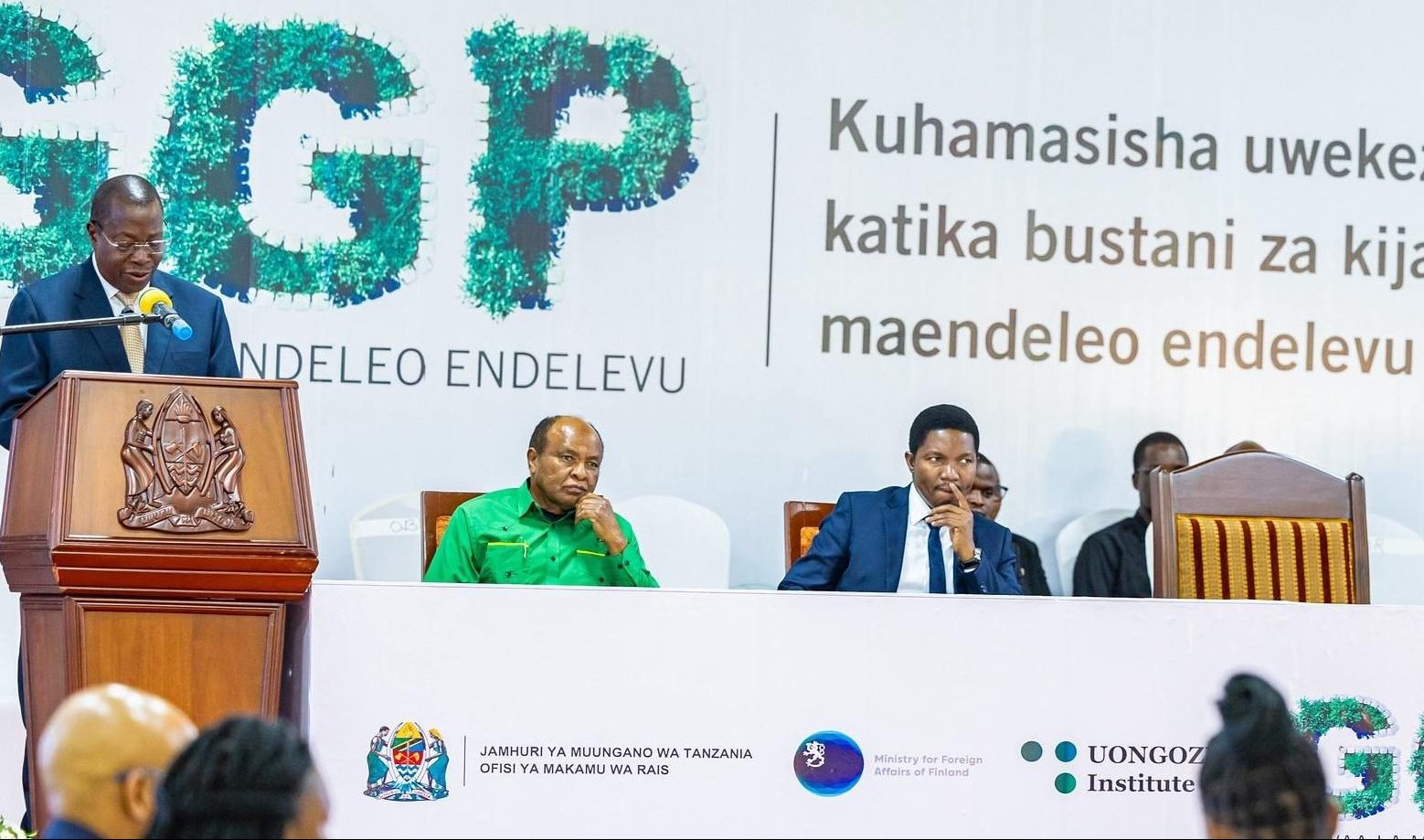By Gwamaka Kifukwe
The global community has reached consensus that climate change is indeed happening, and is a threat to our livelihoods as currently configured. It presents several challenges as ecosystems adapt and weather patterns take new forms, leading to a series of changes. Even if the causes and extent of the threats are still in dispute, climate change is the accepted reality. Rightly, the focus is turning towards thinking of what the impacts of climate change could be, and what can be done about them. Debates now focus on methods of mitigating (the negative impacts) and adaptation to the changing climate reality. In large part, these debates have emphasised the social and economic elements and impacts of climate change – little attention, particularly in Africa, has been paid to the security implications to date.
‘Climate Security’ is a concept that focuses on the impacts of climate change as posing a serious threat to the world’s nations and peoples. In effect, global climate is conceptualised as a public good, and therefore requires national and international recognition and action. Security must be understood in its broad sense, that of being free from a particular danger or threat. Climate Security is therefore heavily linked with energy security, food security, water security, and human security – particularly with regards to changing disease zones, and intra- and inter- state migration.
A Growing global concern
This contested concept is not ‘new’, but it has gathered wider recognition and momentum more recently. By the 1970s various attempts had been made to put environmental concerns into the international security agenda – particularly following the United Nations’ first major conference on international environmental issues known as the ‘Stockholm Conference’ in 1972. The main reason for this has been to increase the relevance of environmental (and by extension, climate change) challenges in politics. The emphasis remained however on social, economic, and environmental aspects, particularly in relation to the development of poor countries as highlighted in the Earth Summit of 1992. In 2005, at the G8 Summit at Gleneagles, the British Government pushed for global action on climate change, with security implications tabled as an important consideration. This was followed by the issue being raised by the UN Security Council for the first time (‘Energy, Climate, and Security’) in April, 2007. More recently, the Paris Climate Conference (COP 21), held in December, 2015 is the greatest milestone reached to-date regarding global collaboration on tackling climate change, and the security implications of climate change were one of the key considerations.
Climate Security and Africa
Climate Security is an important policy space that has direct relevance for Africa’s sustainable development and transformation. As predominantly low-carbon economies, there are a lot of challenges and opportunities at the nexus between the industrialisation (a major African aspiration) and climate change (a global concern) agendas. Globally, there are an increasing number of initiatives and funds aiming to assist developing countries to pursue so-called ‘green’ and ‘blue’ growth strategies which emphasise sustainable use of land and water resources, respectively, rather than following the traditional ‘brown’ industrialise at any cost, and then ‘clean up’ with the new-found wealth later development pathways. Moreover, African economies and livelihoods are highly dependent on their links to nature given the high proportion of the population that is rural, and also the high proportion of people engaged in agricultural and related activities.
Climate change has usually been considered a ‘multiplier of threats’, and the tendency has been to view climate change action as an impediment to economic growth, given the limited resources available for developing countries, pursuing their development aspirations. Inevitably, inaction has been seen as being in national interests in some countries, particularly where countries express climate change as the responsibility of industrialised nations who have caused it, and have the means to tackle it. However, increasingly and globally, the cost of inaction is catching up to, if not overtaking, the cost of climate action. As a result, the discussions surrounding climate change have come to the fore; so too has the recognition of the fragility of ecological systems upon which all human beings are dependent on. As Africa becomes increasingly inter-connected with the world, and grows in stature in the global arena, climate security will likely become a leading concept guiding future climate-related policies, and, to some extent, regional and international cooperation and relations of the Continent.
Implications of Climate Security
Climate Security encourages the (re-)assessment of existing institutional frameworks at every level. Are practices and institutions associated with security adequate and equipped to deal with environmental and climate change related challenges? The key concern is that if appropriate measures are not taken, and promptly, threats from climate change will grow both in number and severity. At present, the politics and economics of climate change in Africa are generally not well understood, presenting a unique challenge that needs to be addressed rather urgently. In addition, climate change is already changing tropical disease zones for plants, animals, and people – leaving communities and ecosystems vulnerable and threatening livelihoods and ecosystems.
For small island states and regions, for example Mauritius and Cape Verde, as well as areas that are at high risk of flooding due to increased annual precipitation and sea level rise, for example Guinea Bissau, climate change poses potential existential threats. In other words, climate change could make large areas of their territory, if not all of it, unsuitable for human existence and more prone to natural hazards and disasters. Shared natural resources, such as the Great Lakes and the Nile River Basin, are also increasingly sources of tensions within and between states that requires attention – We need only look to the tragic consequences of the drying-up of Lake Chad to warn us of potential future scenarios.
Climate Security is a critical component of sustainable development
In summary, the security implications of climate change need serious attention both in terms of their intra- and inter- state impacts. These issues must be taken on board in the broader security discourse of the Continent, regions, and indeed countries and sub-national regions. This applies to the broader civilian population, but also to the formal security apparatuses of the continent. We are no longer able to treat the environment and climate as a stable and neutral context to which our societies and economies operate within, we must recognise climate (and the environment) as a dynamic factor that needs specialised consideration, as with other elements of human activity. In Africa, given our dependence on nature, this is even more important – both to the continent, and indeed to the world.
Gwamaka Kifukwe is the Programme Coordinator for the Sustainable Development Programme at UONGOZI Institute. The Programme has three thematic tracks: 1) Climate Security; 2) Green Industrialisation; and 3) The Implementation of Sustainable Development. The Programme aims to increase the understanding of sustainable development by leaders; and improving policy coherence for sustainable development.






